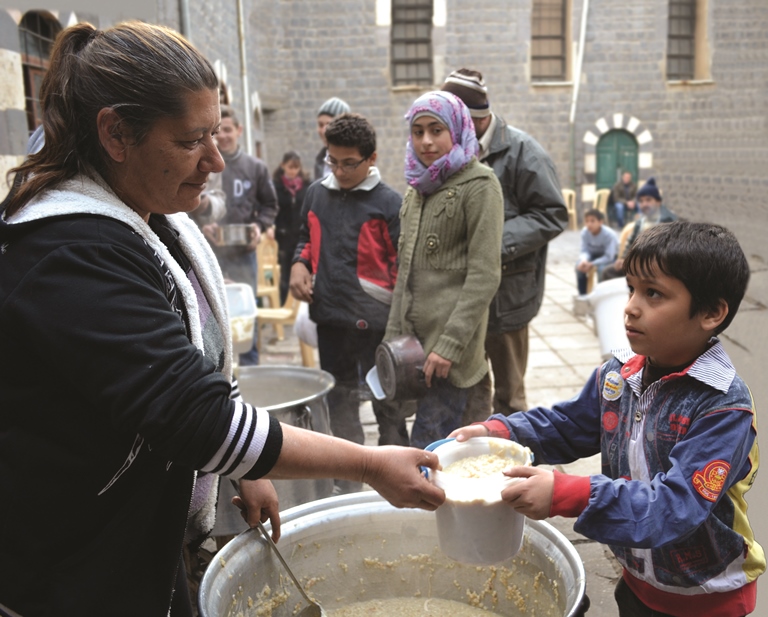|
In Syria, food is 'the most deadly weapon of war'
Thursday, January 21, 2016
Rebels have confiscated humanitarian aid, selling it to the highest bidder to generate funds.
By John
Pontifex
NEW
YORK—Food has become “the most deadly weapon of war” in Syria,
according to a leading Catholic charity’s Middle East expert, who charged that
both government and rebel forces are blocking humanitarian aid to force entire
communities—already on the brink of starvation—to submit to their rule. He
added that rebels have confiscated humanitarian aid, selling it to the highest
bidder to generate funds.
Father
Andrzej Halemba, Middle East project coordinator for international Catholic
charity Aid to the Church in Need, said that many groups are preventing food
aid from getting through in an attempt to weaken the resistance of opposition
groups.
The
priest, who is in constant communication with Church leaders in Syria and who
visited the country three times last year, said the crisis was putting extra
pressure on aid organizations to increase emergency help to accessible areas.
Referring
to the town north-east of Damascus where residents are reportedly starving to
death, Father Halemba said: “There are quite a few places like Madaya where
people are in desperate need but where help is not getting through.”

Amid
reports that up to 4 million people in Syria are living in areas cut off from
aid, the veteran priest cited statistics showing that, since the violence began
nearly five years ago, 280,000 people had been killed in conflict—and that as
many as 350,000 had died from lack of medicine and other essential supplies.
The charity is working with bishops in Damascus, Tartus, Aleppo and Homs as
well as Jesuits and religious communities providing food, medicine, clothing
and shoes in regions such as Aleppo, north-east Syria, as well as Homs, further
south, and areas surrounding Marmarita and the Valley of the Christians.
He
stressed how the crisis was compounded by a loss of power supplies in key
areas. For example, Aleppo has been without a regular supply of electricity
since mid-November, a problem made worse by freezing temperatures at night.
He spoke of the urgent need to provide aid to villages near the north-eastern
city of Hassake, newly liberated from Islamist forces. At present, many internally
displaced Assyrian Christians are unable to return to their villages because of
the lack of basic supplies.
Father
Halemba urged renewed prayers for Syria, especially for 79 Christians kidnapped
form the Assyrian villages near Hassake and held by ISIS at its stronghold of
Raqqa in the north of the country. Reports say the Islamists have requested
ransoms of up to $35,000 per person.
The
priest also highlighted the plight of Christians unable to pay the so-called Islamic
jizya tax demanded in areas controlled
by ISIS and other militant groups. He said that Christians were forced to pay jizya of up to $400 per year—an exorbitant
sum for most ordinary Christians.
Emergency food distribution near Homs, Syria; ACN photo
|